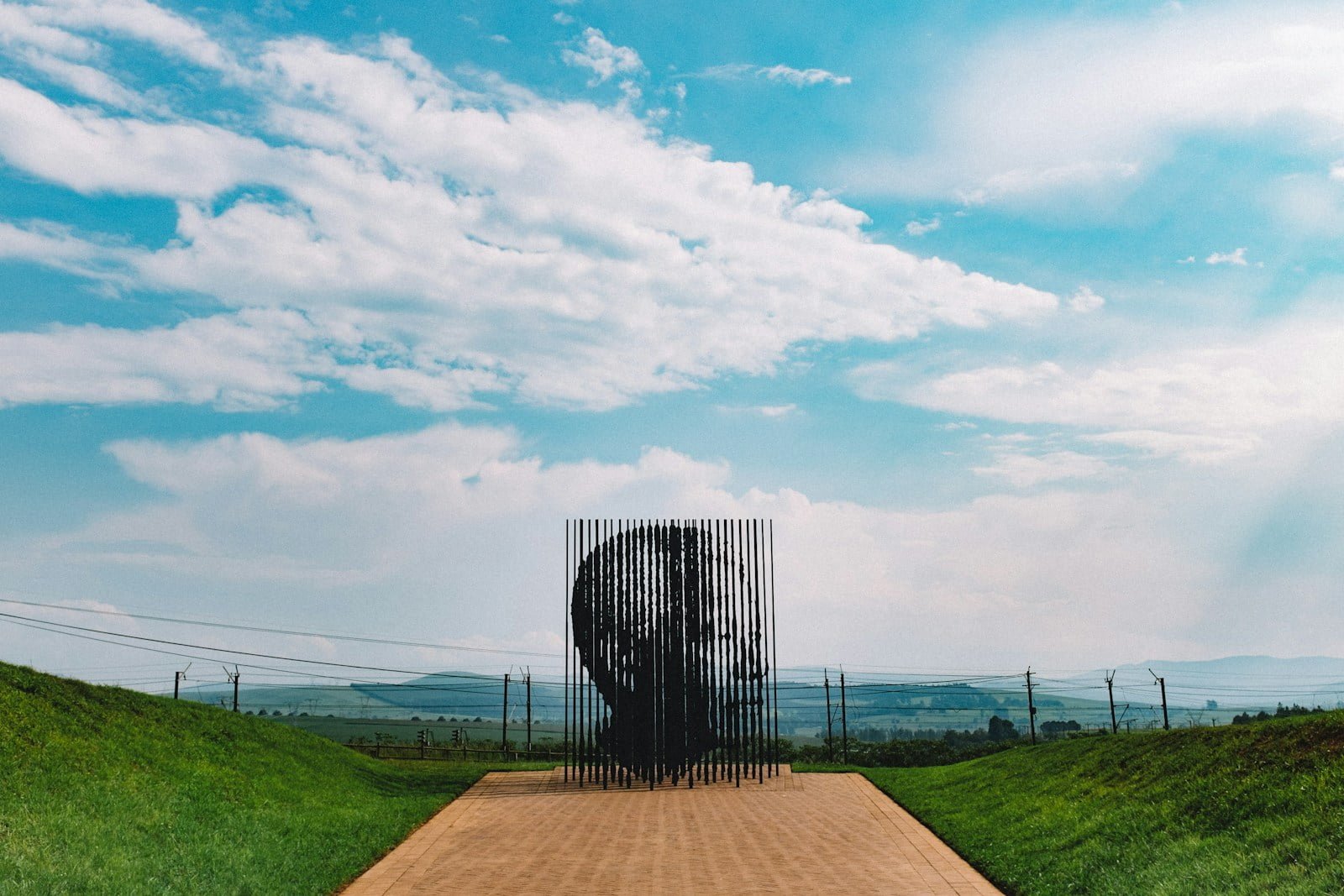
About Rabindranath Tagore
Born: 7 May, 1861
Place of Birth: Calcutta, British India
Penname: Bhanu Singha Thakur (Bhonita)
Father: Debendranath Tagore
Mother: Sarada Devi
Spouse: Mrinalini Devi
Children: Renuka Tagore, Shamindranath Tagore, Meera Tagore, Rathindranath Tagore, and Madhurilata Tagore
Died: 7 August, 1941
Place of Death: Calcutta, British India
Profession: Writer, song composer, playwright, essayist, painter
Language: Bengali, English
Award: Nobel Prize in Literature (1913)
Rabindranath Tagore Jayanti is a highly anticipated event in India, as it celebrates the birth anniversary of one of the country’s most revered figures – Rabindranath Tagore. Born on May 7, 1861, in Kolkata, Tagore went on to become a polymath, leaving an indelible mark on various fields such as literature, music, art, and philosophy. His contributions to the world of literature are particularly noteworthy, as he became the first non-European to win the Nobel Prize in Literature in 1913.
Tagore’s literary works, which include poems, songs, plays, and novels, continue to captivate readers and inspire generations even after his passing. His deep understanding of human emotions, spirituality, and the beauty of nature is reflected in his writings, making them timeless and relevant even in the present day. Tagore’s poetry, in particular, has touched the hearts of millions of people around the world, with its lyrical quality and profound messages.
Rabindranath Tagore Jayanti is celebrated with great enthusiasm across India, with various events and programs organized to honor the poet’s life and works. Schools, colleges, and cultural organizations often hold competitions, recitations, and performances based on Tagore’s poems and songs. These events not only showcase the talent and creativity of participants but also serve as a means to keep Tagore’s legacy alive and introduce his works to younger generations.
On this auspicious day, people also pay homage to Tagore by reciting his inspirational quotes and poems. His words have the power to uplift spirits, instill a sense of purpose, and ignite a love for art and literature. Some of his most famous quotes, such as “Where the mind is without fear and the head is held high,” and “Let your life lightly dance on the edges of Time like dew on the tip of a leaf,” continue to inspire individuals to embrace freedom, creativity, and the pursuit of knowledge.
In addition to his literary contributions, Tagore was also a social reformer and philosopher. He believed in the power of education and worked tirelessly to establish educational institutions that promoted holistic learning and a spirit of inquiry. His vision for education emphasized the development of the mind, body, and soul, and he advocated for a curriculum that integrated the arts, sciences, and humanities.
As we celebrate Rabindranath Tagore Jayanti, it is an opportunity to reflect on the profound impact he has had on Indian culture and the world at large. His writings continue to resonate with people from all walks of life, transcending boundaries of language, religion, and nationality. Tagore’s legacy serves as a reminder of the power of art and literature to inspire, uplift, and unite humanity.
So, as we prepare to commemorate Rabindranath Tagore Jayanti, let us immerse ourselves in his works, explore the depths of his wisdom, and carry forward his message of love, peace, and harmony. May his words continue to guide us on our journey of self-discovery and inspire us to create a better world for future generations.
Tagore’s contribution to literature is unparalleled. His poetry, characterized by its lyrical beauty and profound philosophical insights, has touched the hearts of countless readers. His poems often explore themes of love, nature, spirituality, and the human condition. Through his words, he captured the essence of the human experience, evoking emotions and provoking deep introspection.
Tagore’s musical compositions, known as Rabindra Sangeet, are equally revered. He composed over 2,000 songs, which are still sung and cherished by music enthusiasts today. His melodies, accompanied by his own lyrics, have a distinctive blend of Eastern and Western influences, creating a unique and enchanting musical experience.
In addition to his literary and musical achievements, Tagore was also a talented painter. His artworks, characterized by their vibrant colors and expressive brushstrokes, reflect his deep connection with nature and his exploration of the human psyche. His paintings often depict scenes from rural life, showcasing the simplicity and beauty of everyday existence.
Furthermore, Tagore’s plays, such as The Post Office and The King of the Dark Chamber, have been widely performed and praised for their thought-provoking themes and compelling characters. These plays delve into complex moral and philosophical questions, challenging societal norms and conventions.
Tagore’s impact on Indian culture extends beyond his artistic contributions. He was an advocate for social reform and actively engaged in political and educational initiatives. He established the Visva-Bharati University in Santiniketan, which became a hub of intellectual and artistic pursuits. His vision of education emphasized the harmonious development of the mind, body, and soul, and aimed to foster a sense of unity and understanding among individuals.
Rabindranath Tagore Jayanti serves as a reminder of the enduring legacy of this extraordinary individual. It is a day to celebrate his life, works, and ideals, and to reflect on the power of art and literature in shaping our world. As we pay tribute to Tagore, let us be inspired by his creativity, his passion for knowledge, and his unwavering commitment to humanity.
Additionally, Rabindranath Tagore Jayanti has become an occasion for scholars, researchers, and enthusiasts to delve deeper into the life and works of this iconic figure. It serves as a platform for discussions and debates on Tagore’s philosophy, his impact on Indian literature, and his role in shaping the cultural landscape of the country.
One of the highlights of the celebrations is the recitation of Tagore’s poems and songs, which are an integral part of his literary repertoire. These performances not only showcase the beauty and depth of his words but also serve as a reminder of his profound understanding of human emotions and the universal themes he explored in his writings.
Moreover, Rabindranath Tagore Jayanti is not limited to India alone. It is celebrated by Bengali communities around the world, who take immense pride in their cultural heritage and the contributions made by Tagore. In countries like Bangladesh, where Tagore’s influence is deeply ingrained, the day is observed with great reverence and enthusiasm.
In recent years, the celebration of Rabindranath Tagore Jayanti has expanded beyond traditional events and has embraced modern forms of expression. Artists, musicians, and filmmakers have taken inspiration from Tagore’s works and have created contemporary interpretations that resonate with a younger audience. This fusion of tradition and innovation has breathed new life into the celebrations, making them more inclusive and accessible to people from all walks of life.
Furthermore, Rabindranath Tagore Jayanti serves as a reminder of the enduring power of literature and art to transcend boundaries and connect people across generations. Tagore’s writings continue to inspire and resonate with readers of all ages, and his ideas on education, nationalism, and spirituality remain relevant even in the present day.
In conclusion, the celebration of Rabindranath Tagore Jayanti is a testament to the lasting impact of this literary giant. It is a day to honor his contributions, appreciate his artistry, and reflect on the timeless wisdom encapsulated in his works. Through various cultural events and discussions, people come together to celebrate the life and legacy of Rabindranath Tagore, ensuring that his words and ideas continue to inspire generations to come.
Inspirational Quotes by Rabindranath Tagore
Rabindranath Tagore’s words have the power to touch our hearts, inspire us, and guide us through life’s journey. Here are some of his most profound and inspiring quotes:
“Let your life lightly dance on the edges of Time like dew on the tip of a leaf.”
“The butterfly counts not months but moments, and has time enough.”
“You can’t cross the sea merely by standing and staring at the water.”
“Don’t limit a child to your own learning, for they were born in another time.”
“Clouds come floating into my life, no longer to carry rain or usher storm, but to add color to my sunset sky.”
These quotes by Rabindranath Tagore encapsulate the wisdom and insight that he possessed. His words remind us to live our lives fully, embracing the beauty and fleeting nature of time. Tagore encourages us to be like the dew on a leaf, delicately dancing on the edges of time, reminding us to cherish each moment and make the most of our existence.
The metaphor of the butterfly counting moments rather than months is a powerful reminder to live in the present. Tagore suggests that time is not measured by the calendar, but by the meaningful experiences we have and the impact we make in the world.
The quote about crossing the sea serves as a metaphor for taking action and not being afraid to venture into the unknown. Tagore challenges us to move beyond mere observation and to actively pursue our dreams and goals.
Tagore’s wisdom extends to the realm of education as well. He emphasizes the importance of allowing children to explore and learn in their own unique ways, recognizing that their perspectives and capabilities are shaped by the times they are born into. This quote reminds us to foster an environment of open-mindedness and curiosity, enabling children to thrive and grow.
Finally, Tagore’s reflection on clouds adds a touch of beauty and wonder to his collection of quotes. He sees clouds not just as carriers of rain and storms, but as elements that bring vibrancy and color to the sky. This quote invites us to find joy and appreciate the small moments of beauty that life presents, even in the midst of challenges.
In conclusion, Rabindranath Tagore’s inspirational quotes offer profound insights into the human experience. They encourage us to live fully, embrace the present, take action, nurture the growth of others, and find beauty in unexpected places. These timeless words continue to resonate with readers around the world, providing guidance and inspiration in our daily lives.
Inspirational Poems by Rabindranath Tagore
Rabindranath Tagore’s poetry is a reflection of his deep understanding of life, nature, and human emotions. Here are a few of his iconic poems that continue to inspire generations:
“Where the mind is without fear and the head is held high
Where knowledge is free
Where the world has not been broken up into fragments
By narrow domestic walls
Where words come out from the depth of truth
Where tireless striving stretches its arms towards perfection
Where the clear stream of reason has not lost its way
Into the dreary desert sand of dead habit
Where the mind is led forward by thee
Into ever-widening thought and action
Into that heaven of freedom, my Father, let my country awake.”
“I slept and dreamt that life was joy. I awoke and saw that life was service. I acted and behold, service was joy.”
“Let me not pray to be sheltered from dangers, but to be fearless in facing them. Let me not beg for the stilling of my pain, but for the heart to conquer it.”
“The song I came to sing remains unsung to this day. I have spent my days in stringing and in unstringing my instrument.”
Rabindranath Tagore’s poems are timeless pieces of literature that resonate with readers across cultures and generations. His words have the power to transport us to a world where fear is conquered, knowledge is valued, and the pursuit of perfection is relentless. In the first poem, “Where the mind is without fear,” Tagore envisions a society free from narrow-mindedness and division, where truth and reason guide individuals towards progress and enlightenment. This powerful vision of a united and free nation continues to inspire people to strive for a better world.
In the second poem, “I slept and dreamt,” Tagore encapsulates the essence of a fulfilling life. He reminds us that true joy comes from selfless service and meaningful actions. This poem serves as a gentle reminder to prioritize acts of kindness and generosity in our daily lives.
The third poem, “Let me not pray,” challenges conventional notions of seeking comfort and relief. Tagore urges us to embrace courage and face our fears head-on, rather than seeking shelter or escaping from them. He highlights the importance of inner strength and resilience in overcoming adversity.
In the final poem, “The song I came to sing remains unsung,” Tagore reflects on the fleeting nature of life and the pursuit of creative expression. He acknowledges the struggles and uncertainties that come with artistic endeavors, emphasizing the importance of perseverance and dedication.
Overall, Rabindranath Tagore’s poems continue to inspire and resonate with readers, offering profound insights into the human experience and encouraging us to embrace our true potential.

Historical significance of Rabindranath Tagore Jayanti
Rabindranath Tagore Jayanti holds great historical significance as it commemorates the birth anniversary of one of India’s most revered literary figures. Rabindranath Tagore, also known as Gurudev, was not only a prolific writer but also a poet, philosopher, musician, and artist. He was the first non-European to receive the Nobel Prize in Literature in 1913 for his collection of poems, Gitanjali.
Tagore’s contributions to literature and his efforts in shaping Indian culture and society were immense. He played a crucial role in the Bengal Renaissance, a period of intellectual and artistic revival in Bengal, where he sought to challenge the prevailing social and cultural norms. Through his literary works, Tagore addressed various social issues such as gender inequality, caste discrimination, and religious intolerance, advocating for a more inclusive and progressive society.
Furthermore, Tagore’s influence extended beyond literature. He was a prominent figure in the Indian independence movement and used his platform to advocate for India’s freedom from British colonial rule. Tagore’s patriotic songs and poems became anthems of the freedom struggle, inspiring millions of Indians to fight for their rights and independence.
By celebrating Rabindranath Tagore Jayanti, we not only pay tribute to his immense literary and artistic contributions but also recognize his role as a social reformer and freedom fighter. His ideas and teachings continue to resonate with people from all walks of life, transcending geographical and cultural boundaries.
Through the celebration of Rabindranath Tagore Jayanti, we honor his legacy and ensure that future generations are aware of his profound impact on Indian literature, art, and society. It is a time to reflect on his teachings, appreciate his works, and strive to embody the values he espoused in our own lives.
FAQs:
What is Rabindranath Tagore Jayanti?
Rabindranath Tagore Jayanti is an annual celebration of the birth anniversary of Rabindranath Tagore, a renowned poet, philosopher, musician, and artist from India. It is observed on May 7th every year to honor Tagore’s contributions to literature, music, and art.
Who was Rabindranath Tagore?
Rabindranath Tagore, also known as Gurudev, was a multi-talented personality who made significant contributions to various fields. He was born on May 7, 1861, in Kolkata, India, into a prominent Bengali family. Tagore was not only a poet but also a playwright, novelist, essayist, philosopher, musician, and painter.
Tagore’s literary works, including poems, songs, plays, and novels, are considered some of the finest in Bengali and world literature. He was the first non-European to win the Nobel Prize in Literature in 1913 for his collection of poems, “Gitanjali” (Song Offerings).
How is Rabindranath Tagore Jayanti celebrated?
Rabindranath Tagore Jayanti is celebrated with great enthusiasm in India, especially in the state of West Bengal, where Tagore’s influence is deeply rooted. The day is marked by various cultural programs, including recitation of Tagore’s poems and songs, dance performances, musical tributes, and theatrical performances based on his works.
Schools, colleges, and cultural organizations organize special events to pay tribute to Tagore’s legacy. People also visit Tagore’s ancestral home, Jorasanko Thakur Bari, in Kolkata, which has been converted into a museum dedicated to his life and works.
What is the significance of Rabindranath Tagore’s works?
Rabindranath Tagore’s works hold immense significance in the world of literature and art. His poetry reflects deep philosophical insights, exploring themes of love, nature, spirituality, and human emotions. Tagore’s songs, known as Rabindra Sangeet, have become an integral part of Indian cultural heritage and are widely appreciated for their lyrical beauty.
Tagore’s writings also played a crucial role in India’s freedom struggle against British colonial rule. His compositions, such as “Jana Gana Mana,” which later became the Indian national anthem, inspired patriotism and unity among the masses.
What is Tagore’s contribution to education?
Rabindranath Tagore was a visionary in the field of education. He established Visva-Bharati University in Santiniketan, West Bengal, with the aim of creating a holistic learning environment that combines the best of Indian and Western education systems.
Tagore believed in the importance of nurturing creativity, critical thinking, and a deep connection with nature in education. He emphasized the need for education to be rooted in one’s cultural heritage while embracing a global perspective.
Visva-Bharati University continues to follow Tagore’s educational philosophy, offering a unique learning experience that promotes artistic expression, intellectual growth, and a harmonious relationship with the environment.
What is the legacy of Rabindranath Tagore?
Rabindranath Tagore’s legacy is far-reaching and continues to inspire people around the world. His literary and artistic creations have left an indelible mark on Indian and global culture. Tagore’s works have been translated into numerous languages, making them accessible to a wider audience.
Tagore’s philosophy of universal humanism, as depicted in his writings, promotes the idea of harmony, love, and understanding among individuals and nations. His belief in the power of art and literature to transcend boundaries and foster empathy resonates even today.
Rabindranath Tagore’s contributions to literature, music, art, and education have made him an iconic figure in India and beyond. His influence continues to be celebrated and his works continue to inspire generations.







